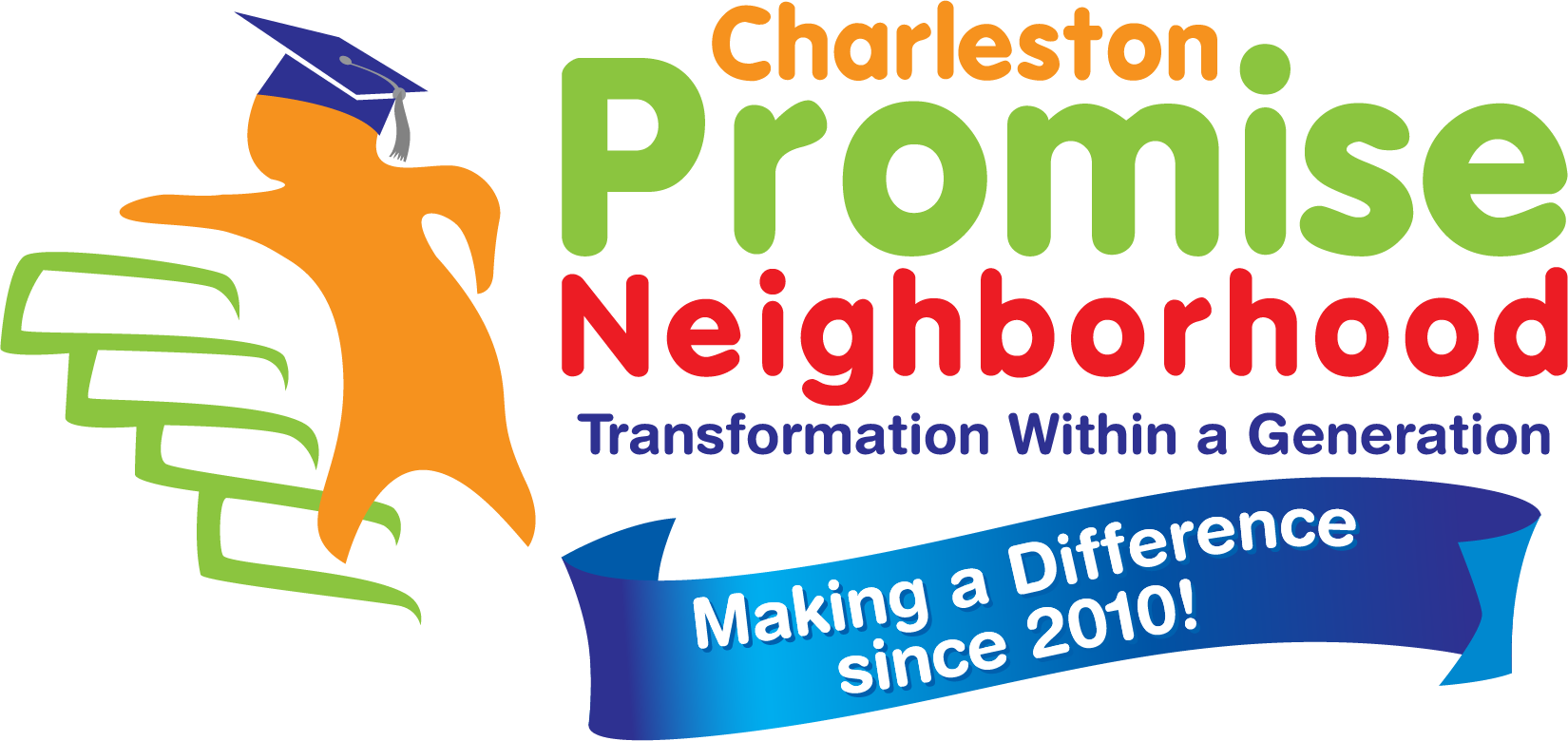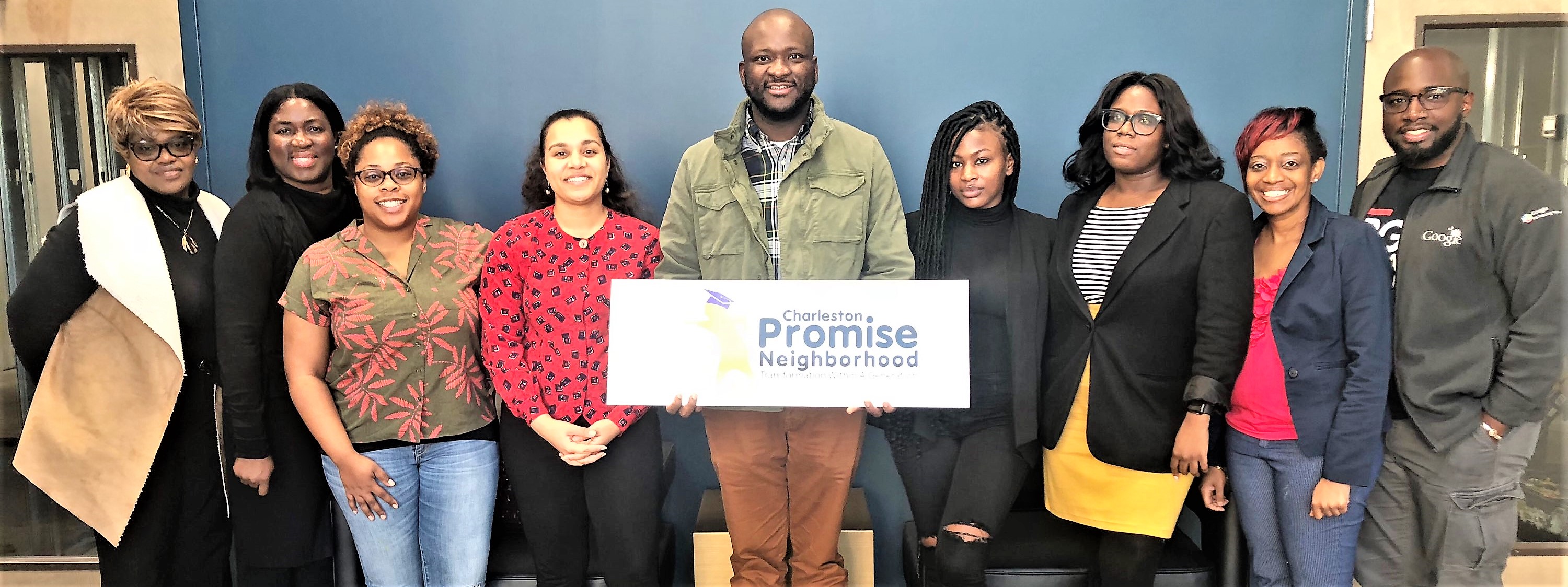 We have an incredible opportunity here at the Charleston Promise Neighborhood and, like everything else we do here, we’re seeking your input and support. We’ve been invited to submit a grant application for a multi-year project focused on empowering and supporting women who live in the Neighborhood, and we’ve got about a month to get our ducks lined up and propose something that’s innovative and responsive.
We have an incredible opportunity here at the Charleston Promise Neighborhood and, like everything else we do here, we’re seeking your input and support. We’ve been invited to submit a grant application for a multi-year project focused on empowering and supporting women who live in the Neighborhood, and we’ve got about a month to get our ducks lined up and propose something that’s innovative and responsive.
We’ve already done some research, and now we need to round out the program. Can you take a few moments to read through the highlights below and share your thoughts, either in the comments section of the blog (below), or by sending me an email at laura.deaton@charlestonpromise.org?
As always, we’re grateful for your support,
–Laura
“Sister-friends are women that are so close, they could be sisters. They can’t live without each other. Side by side or miles apart, they will always be close. To each other, they are unforgettable. When they are happy, you are. When they feel pain… you do. Living without them isn’t an option. They are your life. You love them.” –Urban Dictionary
Background
Women represent the greatest strength of the Neighborhood, yet they also face the greatest challenges. In fact, over 30% of households in the Neighborhood are headed by single females, from teenagers to great grandmothers.
Female-headed households with children are among households most at risk for poverty, and female-headed households with children in the South have higher odds of poverty compared to other regions, so addressing women’s issues is key to transforming the Neighborhood. For the women in the Neighborhood who do live in poverty, our goal is to empower women to change their own lives and lift themselves – and their families – out of poverty.
CPN SISTER-FRIENDS STRATEGY
Our strategy is designed to work together with our initial focus on female parents/caregivers of children who attend the four CPN elementary schools: Sanders-Clyde, Chicora, Mary Ford, and James Simons. We’re also designing it to become a Neighborhood-led initiative that is self-sustaining and active over time.
Building Trust – 2011-2012 School Year
We’re planning on having the first year of the Sister-Friends program focus on:
- Creating spaces and opportunities to meet and gather for fun and friendship.
- Encouraging the sharing of experiences and mutual support.
- Encouraging issues and advocacy-based discussions on shared issues for women who live in the Neighborhood.
We plan to collaborate with Neighborhood women and local women-serving organizations to design, create, and host regular Sister-Friends gatherings at (or near) the four CPN elementary schools to empower women who are parenting school-age children while acknowledging and affirming their life experiences.
HELP NEEDED: What kind of trust-building activities do you think would be successful?
Expanding Horizons – 2012-2013 School Year
For the second year, we’re planning on focusing on increasing membership and involvement in Sister-Friends, while:
- Providing exposure to new kinds of activities so that women can realize their different capabilities.
- Providing other types of general support and encouragement that have emerged as a result of our first year activities.
We want this to be a “women-driven” plan with the women who have become Sister-Friends.
HELP NEEDED: What kinds of activities and support would be a “natural fit” for this second year?
Creating a Roadmap for Change – 2012-2013 School Year
During the third year, Sister-Friends will likely move to a more traditional offering of program supports. While still women-driven, the goal is to begin implementing one or more direct programs based on the priorities of the women who have been active and engaged in the first two years of the program.
As an example, programs could include:
- Parenting training and support
- Adult literacy support, vocational training, job search support or microenterprise opportunities.
- Safe and affordable child care initiatives.
- Leadership training or other skill-building.
- Other opportunities for breaking the cycle of inter-generational poverty that the Sister-Friends group identifies as top priorities.
HELP NEEDED: Can you think of already-existing local programs or service providers who are doing great work in this area? Is there anything else that you can think of that would help us make this project successful when it is funded?




